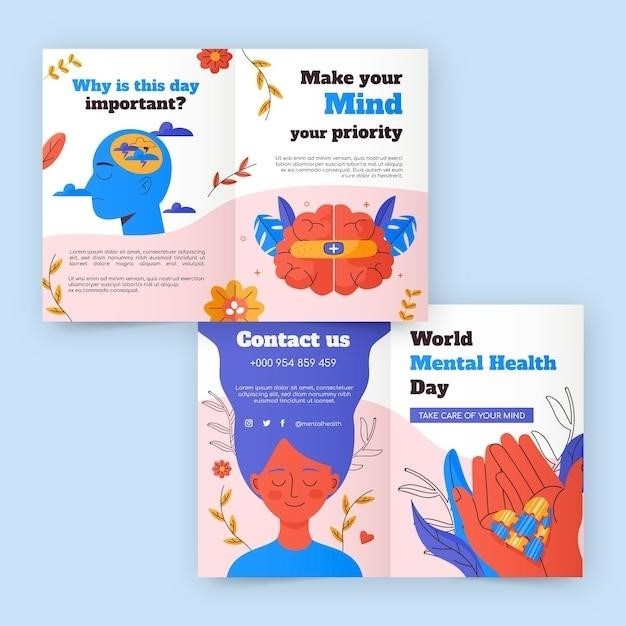Daniel Goleman’s Emotional Intelligence⁚ A Comprehensive Overview
Daniel Goleman’s work significantly popularized emotional intelligence (EQ), arguing its importance surpasses IQ. His books, including “Emotional Intelligence” and “Working with Emotional Intelligence,” explore EQ’s components and applications in various life aspects, offering practical strategies for self-improvement and enhanced relationships.
Goleman’s Definition and Key Concepts
Goleman’s definition of emotional intelligence centers around the ability to understand and manage one’s own emotions, as well as recognize and influence the emotions of others. This isn’t merely about feeling emotions; it’s about harnessing them constructively. Key concepts within Goleman’s framework include self-awareness (understanding one’s emotions and their impact), self-regulation (managing emotions effectively), motivation (driving oneself with enthusiasm and perseverance), empathy (understanding and sharing the feelings of others), and social skills (building and maintaining positive relationships). These elements are interconnected, forming a holistic model of emotional competence. Goleman emphasizes the practical application of EQ, showing how it contributes to success in various life domains, from personal relationships to professional achievements. His work highlights the crucial role of emotional intelligence in navigating complex social situations and achieving personal fulfillment. The ability to understand and manage emotions is viewed not as a separate entity but as integral to effective decision-making and problem-solving.
The Four Domains of Emotional Intelligence
Goleman’s model organizes emotional intelligence into four crucial domains. Firstly, self-awareness involves understanding one’s own emotions, strengths, weaknesses, and drives. It’s about recognizing how your feelings influence your thoughts and actions. Secondly, self-management focuses on the ability to control or redirect disruptive impulses and moods. This includes self-control, trustworthiness, conscientiousness, adaptability, and achievement orientation. Thirdly, social awareness highlights the capacity to understand the emotional makeup of other people. This encompasses empathy, organizational awareness, and service orientation. Finally, relationship management centers on the skills needed to manage relationships effectively. It includes inspirational leadership, influence, communication, conflict management, and building bonds. These four domains are not independent; rather, they interact and influence each other, contributing to a comprehensive understanding of emotional intelligence and its impact on personal and professional success. The interplay between these domains is crucial for navigating complex social situations and fostering positive relationships.
Emotional Intelligence vs. IQ⁚ The Debate
Goleman’s work ignited a significant debate, challenging the long-held belief that IQ solely determined success. He argued that emotional intelligence, while distinct from IQ, is equally, if not more, crucial for navigating life’s complexities and achieving fulfillment. Critics questioned the scientific rigor of Goleman’s model, citing a lack of standardized measurement and concerns about the overlap between emotional intelligence and personality traits. Some researchers emphasize the strong correlation between IQ and achievement, particularly in academic and professional settings. Others contend that EQ plays a more significant role in areas like leadership, teamwork, and building strong relationships. The debate persists, with ongoing research attempting to clarify the relative contributions of IQ and EQ to overall success and well-being. While IQ remains a valuable measure of cognitive abilities, the discussion highlights the increasing recognition of emotional intelligence as a critical factor contributing to personal and professional effectiveness.
Applications of Emotional Intelligence
Goleman’s research showcases emotional intelligence’s broad applicability across various domains, including workplace dynamics, education, and personal growth, significantly impacting individual success and overall well-being.
Emotional Intelligence in the Workplace
Goleman’s work emphasizes emotional intelligence’s crucial role in effective workplace performance. His research highlights how emotional self-awareness, self-regulation, motivation, empathy, and social skills contribute to enhanced leadership, improved teamwork, and reduced workplace conflict. Managers with high emotional intelligence foster positive work environments, motivating employees and promoting collaboration. Studies suggest a strong correlation between emotional intelligence and job satisfaction, productivity, and overall organizational success. Goleman’s insights have influenced numerous workplace training programs focused on developing employees’ emotional intelligence competencies. These programs often incorporate self-assessment tools, coaching, and workshops to improve emotional awareness and management skills. The practical application of Goleman’s theories has led to measurable improvements in team dynamics, conflict resolution, and overall organizational climate, making emotional intelligence a key focus in modern workplace development.
Emotional Intelligence in Education
Goleman’s research significantly impacted educational approaches, advocating for the integration of emotional intelligence into curricula. He argues that fostering emotional literacy alongside academic skills equips students with crucial life skills. His work suggests that emotionally intelligent students are better equipped to manage stress, build positive relationships, and navigate academic challenges effectively. Schools incorporating emotional intelligence programs often see improvements in classroom behavior, reduced bullying, and increased student engagement. These programs often involve teaching self-regulation strategies, empathy development, and conflict resolution skills. By incorporating emotional intelligence training, educational institutions aim to cultivate well-rounded individuals prepared for success beyond academic achievements. Goleman’s influence is evident in the growing emphasis on social-emotional learning (SEL) in modern educational settings, demonstrating the lasting impact of his research on pedagogical approaches.
Emotional Intelligence in Personal Development
Goleman’s work provides a framework for personal growth by emphasizing the crucial role of emotional intelligence in overall well-being. Understanding and managing one’s emotions, as Goleman highlights, is fundamental to building strong relationships, achieving personal goals, and navigating life’s inevitable challenges. His research suggests that developing self-awareness, self-regulation, motivation, empathy, and social skills are key components of personal development. By improving emotional intelligence, individuals can enhance their self-esteem, improve communication, and foster more fulfilling relationships. The practical applications of Goleman’s concepts extend to various aspects of personal life, including stress management, conflict resolution, and decision-making. Self-reflection, mindfulness practices, and actively seeking feedback are all strategies suggested by Goleman’s work to enhance personal emotional intelligence. Ultimately, applying Goleman’s insights empowers individuals to lead more balanced and successful lives.

Criticisms and Controversies Surrounding Goleman’s Work
Goleman’s work on emotional intelligence has faced criticism regarding its scientific rigor and the lack of a universally accepted definition of emotional intelligence, prompting ongoing debate within the field of psychology.
Scientific Validity of Emotional Intelligence
A significant criticism leveled against Goleman’s work centers on the scientific validity of his model of emotional intelligence. While Goleman’s books popularized the concept and made it accessible to a wide audience, some researchers argue that his approach lacks the rigorous empirical backing found in more traditional intelligence assessments. The definition of emotional intelligence itself remains a point of contention, with various models and measurement tools proposed, leading to inconsistent findings across studies. Critics point to the absence of a universally agreed-upon definition and standardized measurement, making it challenging to conduct robust, replicable research. The lack of a clear, universally accepted definition makes it difficult to compare results across different studies and to draw firm conclusions about the construct’s validity and predictive power. This lack of standardized measurement also raises concerns about the reliability and generalizability of findings related to emotional intelligence. Furthermore, some researchers question whether emotional intelligence is truly a distinct form of intelligence, or simply a collection of related personality traits and social skills.
Limitations of Goleman’s Model
Despite the widespread influence of Goleman’s work, his model of emotional intelligence has faced criticism regarding its limitations. One major critique focuses on the lack of a precise, universally accepted definition of emotional intelligence, leading to inconsistencies in measurement and research findings. The model’s breadth, encompassing various aspects of emotional understanding and management, can also be seen as a weakness. This broad scope makes it challenging to pinpoint specific, measurable components, hindering the development of reliable assessment tools. Furthermore, the emphasis on practical application and self-improvement, while valuable, might overshadow the need for rigorous scientific investigation into the underlying mechanisms of emotional intelligence. Some argue that Goleman’s work oversimplifies complex psychological processes, neglecting the interplay between cognitive abilities, emotions, and social factors. The lack of clear boundaries between emotional intelligence and related constructs, such as personality traits, further complicates its conceptualization and measurement. Consequently, the predictive validity of Goleman’s model, particularly in terms of real-world outcomes, remains a subject of ongoing debate and research.

Accessing Goleman’s Work⁚ PDFs and Other Resources
While unauthorized distribution of copyrighted material is illegal, numerous online platforms offer legitimate avenues to access Daniel Goleman’s work on emotional intelligence. His books, including the seminal “Emotional Intelligence,” are widely available through reputable online retailers like Amazon, offering various formats such as print, ebook, and audiobook. Libraries often maintain extensive collections of Goleman’s publications, providing free access to patrons. Many university libraries offer digital access to scholarly articles and research papers related to Goleman’s work and the broader field of emotional intelligence. Additionally, academic databases such as JSTOR and Google Scholar provide a rich resource for researching Goleman’s impact and the subsequent academic discourse surrounding emotional intelligence. Reputable websites and online learning platforms frequently host excerpts, summaries, or related content discussing his ideas, offering alternative access points for those seeking information on Goleman’s significant contributions to the field. However, always ensure you are using reliable and verified sources to obtain accurate information.
